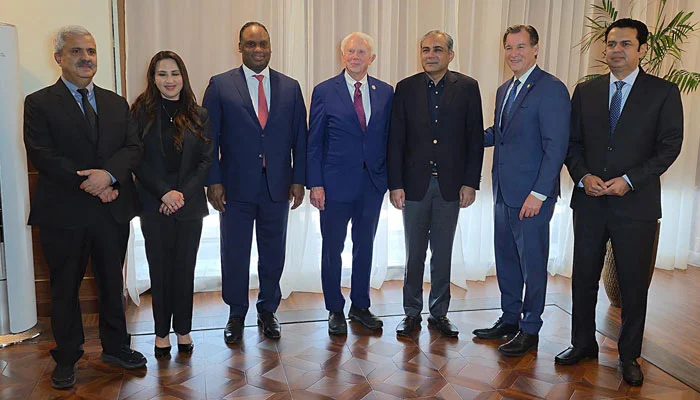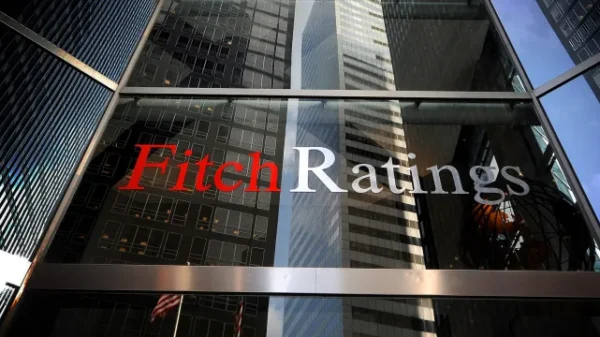Interior Minister Mohsin Naqvi reaffirmed Pakistan’s frontline role in the global fight against terrorism, stating that the country “stands as a wall between terrorism and the rest of the world.”
He made these remarks during a high-level meeting with a visiting delegation of US congressmen comprising Jack Bergman, Tom Suozzi, and Jonathan Jackson. Acting US Ambassador Natalie Baker also attended the meeting, alongside Interior Secretary Khurram Agha and Minister of State for Interior Talal Chaudhry.
The discussions focused on strengthening bilateral ties and cooperation in key areas such as economy, trade, investment, security, counterterrorism, and border management.
Calling terrorism a “global challenge,” Naqvi urged the international community to extend full support to Pakistan. He emphasized the importance of intelligence sharing and technological collaboration in tackling terrorist threats.
Highlighting Pakistan’s enduring struggle, Naqvi said the nation’s sacrifices in the fight against terrorism are unmatched globally. He noted that the visit of US congressmen would help bring international attention to Pakistan’s pivotal role in maintaining regional and global security.
Naqvi also welcomed the US delegation’s participation in the upcoming Pakistan Minerals Investment Forum 2025, assuring that the government would provide all necessary support and protection to investors.
He underscored that strong and sustainable relations with the United States are a cornerstone of Pakistan’s foreign policy. The minister also described the formation of the Pakistan Caucus in the US Congress, scheduled for April 30, as a positive development.
The US lawmakers acknowledged the need to spotlight Pakistan’s efforts and sacrifices in counterterrorism. They praised the contributions of the Pakistani diaspora in the United States, describing them as talented and industrious.
Minister of State for Interior Talal Chaudhry stated that the upcoming counter-terrorism dialogue in Islamabad, planned for June, will further enhance bilateral cooperation in this critical domain.
Pakistan has faced a surge in terrorist violence since the return of the Taliban to power in Afghanistan in 2021, especially in border provinces such as Khyber Pakhtunkhwa and Balochistan.
According to the CRSS Annual Security Report 2024, the past year was the deadliest for Pakistan’s civilian and military security forces in a decade, recording at least 685 fatalities and 444 terror attacks.
Overall, 2024 witnessed a nine-year high in violence-related deaths, marking a 66% increase over the previous year. On average, nearly seven people were killed each day, with November being the most lethal month of the year.
Khyber Pakhtunkhwa bore the brunt of the violence, suffering 1,616 fatalities, followed by Balochistan with 782 deaths. The nationwide total reached 2,546 fatalities and 2,267 injuries across civilians, security personnel, and militants.
These casualties stemmed from 1,166 incidents, including terror attacks and counter-terror operations—underscoring the severe security challenges faced by the country.










